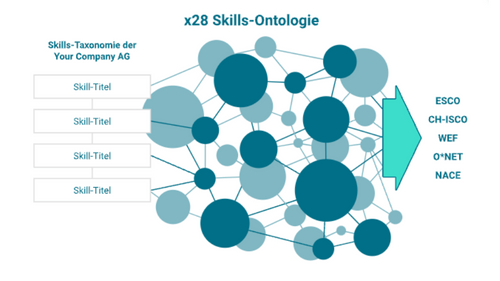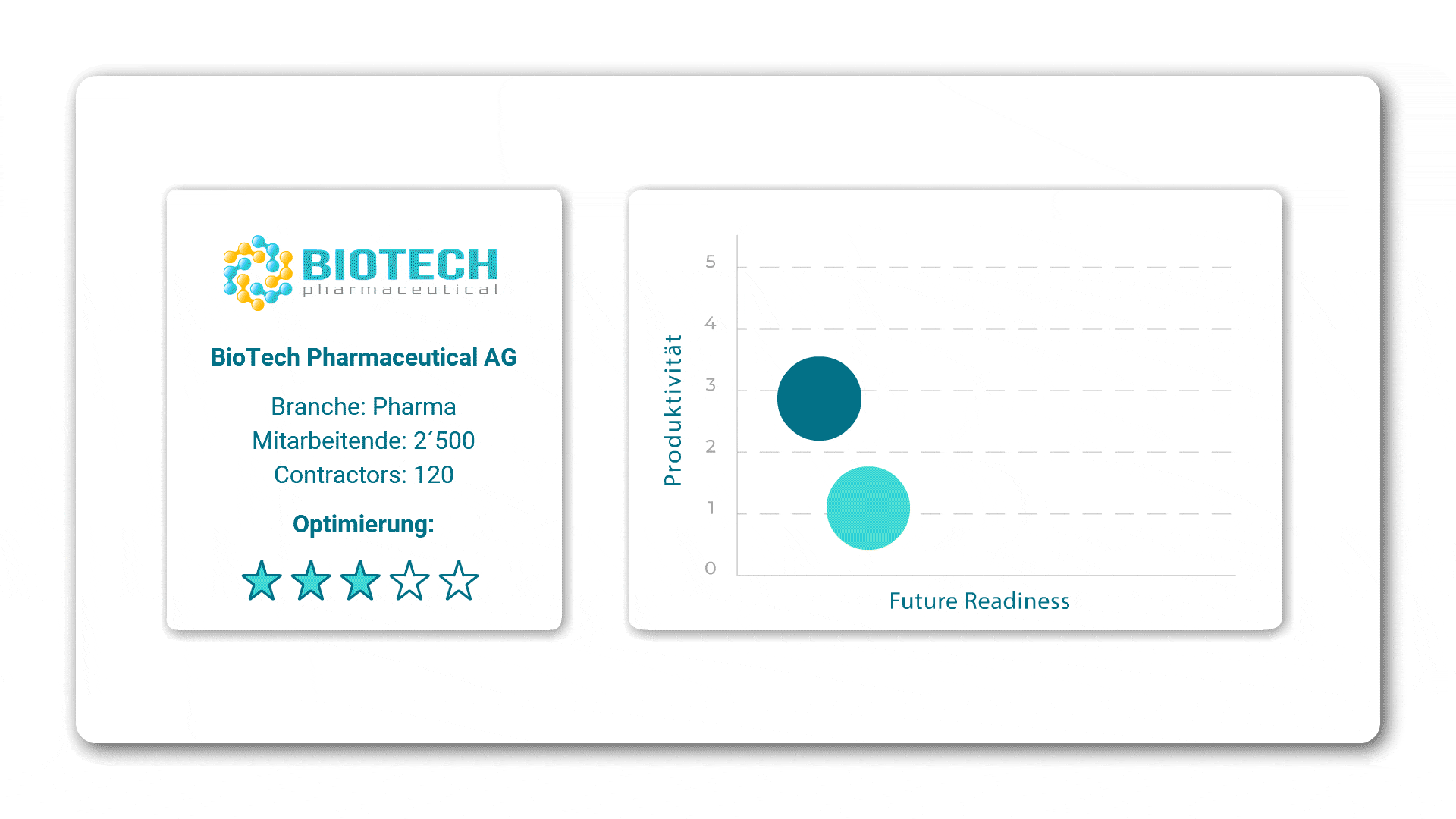— Skills ontology —
“Building a common language for skills at work”
145’000
Job title synonyms
157
Professional groups
120’000
Skills

Make smart use of existing knowledge
“Skills Taxonomy is the next big thing” according to Josh Bersin. We go even further and believe that without a skills ontology, various HR processes cannot function at their best. With minimal effort, you can obtain your own skills ontology, based on your terminology/taxonomy as well as common taxonomies like ESCO, WEF, and others.

The workforce of tomorrow is just a few clicks away
Find out if your company has the skills needed to implement future strategies. In the age of skills shortages, it is increasingly critical to identify necessary skills early. Additionally, and just as importantly, upskilling and reskilling become immediately more goal-oriented.
Learn more
Would you like to know how to utilize the skills-ontology for your company and optimize your business and HR processes?


What is an ontology?
An ontology is a gigantic set of data, relationships, and rules. The important aspect is that an ontology shows how information is interconnected – a web of information.
Why would you want something like this?
Ontologies provide shared knowledge about a specific domain. This enables machines to process human concepts and ideas. Consequently, ontologies contribute to machine learning and the advancement of artificial intelligence significantly.
Understanding large amounts of information
An ontology is a foundation for the so-called semantic web. This involves a set of classes, attributes, and relationships that can be used to model a knowledge or subject domain.
Ontologies, also known as semantic networks, represent a formal model of the world (or parts of it), where all relevant terms and relationships are agreed upon by the participants.
But how does it work?
The key is translating human understanding and conceptual terms into a form (or language) accessible to computers. An ontology must be developed from the outset by experts in the relevant domain to ensure that all data is processed correctly. So, in the development, all relevant terms need to be related to one other to ensure that the machine eventually “understands” the various terms and knows how to process them.
Building an ontology is a massive undertaking because you need to teach the machine all the rules, hierarchies, and semantic nuances of the language. Therefore, ontologies are usually created for a specific domain.
Get in touch with us!
By submitting the form, you accept the privacy policy.
This form is protected by reCAPTCHA and the Google privacy policy as well as the terms of use apply.